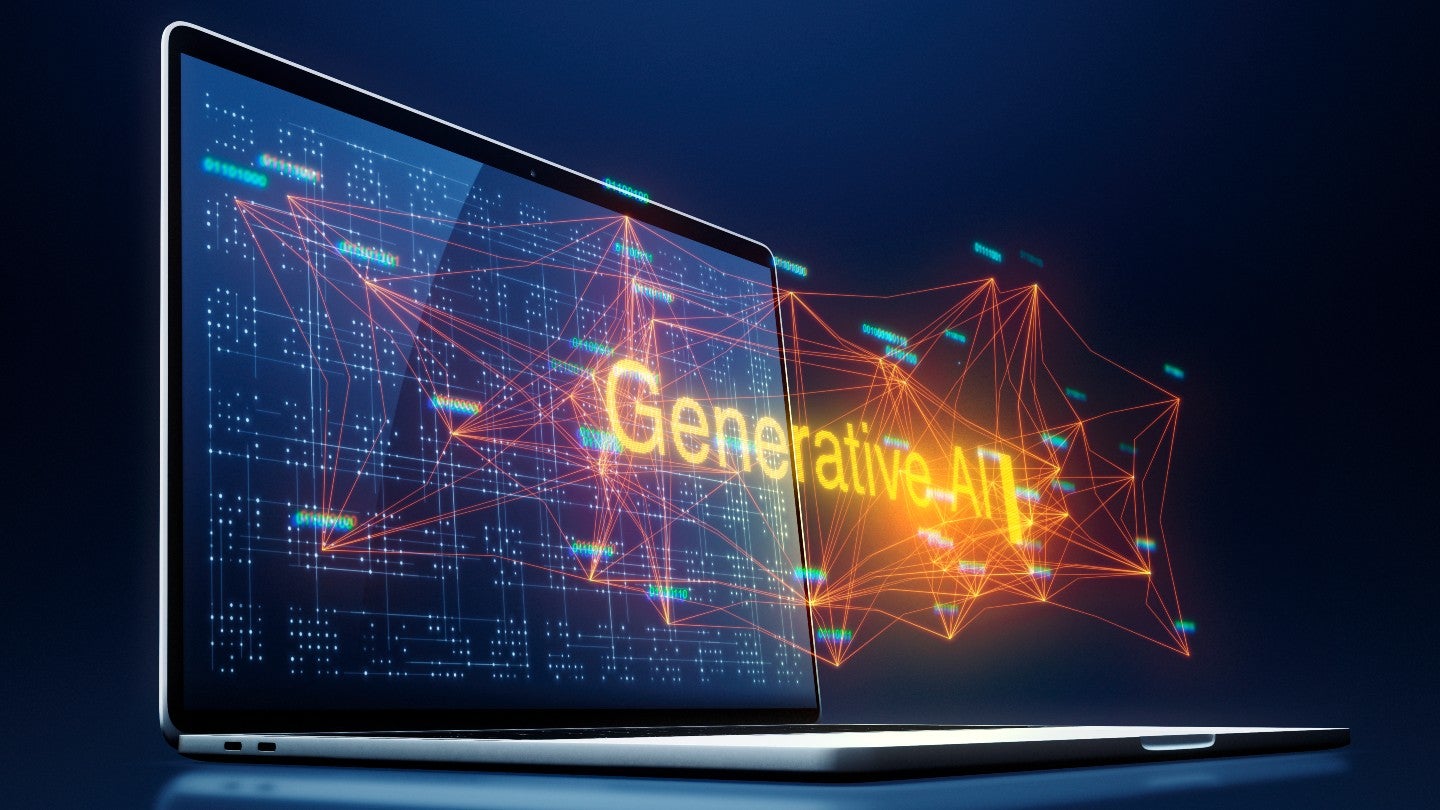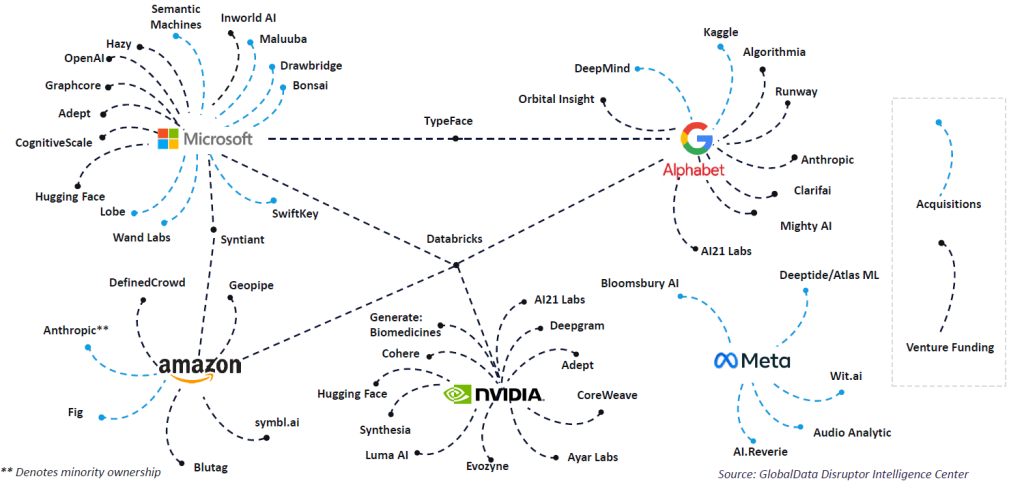
The overall artificial intelligence (AI) market will be worth $909bn by 2030 having grown at a compound annual rate of 35% between 2022 and 2030, according to GlobalData Research Director Josep Bori.
Bori was speaking as part of a GlobalData webinar about the disruptive potential of generative AI on 3 October. During the Generative AI: A Game Changer for Businesses webinar he set out key trends in regulation and business and outlined questions that still leave the technology’s future up for discussion.
Generative AI is a form of the technology that can generate new written, visual and audio content by using inputs it is trained on. The best-known example of this currently is the ChatGPT large language model-based chatbot.
GlobalData’s analysts have identified generative AI to be in phase one out of four of its development, with typical accuracy estimated to be below 80% and still relatively unreliable. It is predicted that the technology should enter phase two in the next one to five years, with reduced ‘hallucinations’. This refers to when a generative AI model generates nonsensical or false information, unrelated to the source material, and is a core accuracy problem that is trying to be overcome.
In 10-30 years’ time, up to 99% accuracy will be achieved, with reliable common sense and planning capabilities. After that, in the fourth phase, generative AI will achieve human levels of sentience and translation.
Industry uses for generative AI
The technology has implications to be used across an array of industries including software development, media, healthcare and more. Among the most novel potential uses of generative AI are those of NASA employing it to build spaceships and NVIDIA for drug development.
How well do you really know your competitors?
Access the most comprehensive Company Profiles on the market, powered by GlobalData. Save hours of research. Gain competitive edge.

Thank you!
Your download email will arrive shortly
Not ready to buy yet? Download a free sample
We are confident about the unique quality of our Company Profiles. However, we want you to make the most beneficial decision for your business, so we offer a free sample that you can download by submitting the below form
By GlobalDataIn the last five years, GlobalData has identified an 83% compound annual growth rate for patent filing trends relating to generative AI.
A key use case is to assist with coding and application development. GlobalData’s research showed that the top patent application area over the same period was application development, with 33% of the patents being in this sector for interest in generative AI for coding. Google and IBM have both been utilising generative AI to create code and assist developers.
Investment in generative AI
There has been a steady stream of acquisitions and venture funding in generative AI from tech giants like Microsoft, Amazon, Nvidia, Meta and Google. Microsoft has been the most active in these areas.

It was outlined in the Generative AI: A Game Changer for Businesses webinar that generative AI is expected to remain the fastest-growing AI technology and will pose a threat to “every business across every sector”. Despite this, the road map for the technology’s future is not set in stone.
Several questions remain about AI’s long-term impact and implications. Firstly, can the issue of ‘hallucinations’ be resolved? There are also questions about whether scaling up language learning models will lead to artificial general intelligence and the environmental impact of the tech.







